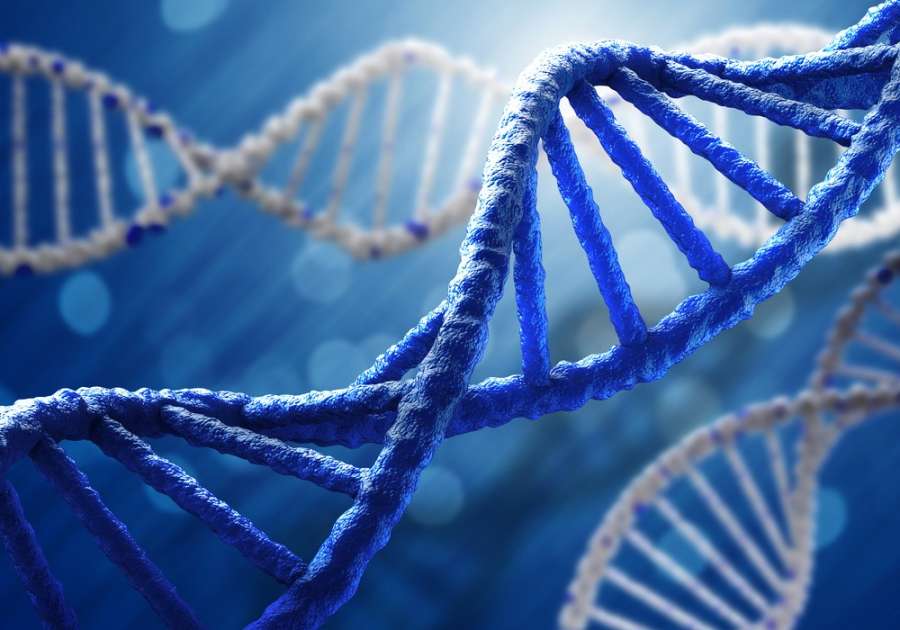
Inherited Memory Code: How Cells Pass On Experience Through Epigenetics
Barekat Pharmaceutical & Health Group: The field of epigenetics has unveiled a groundbreaking concept: our experiences—ranging from environmental exposures to emotional stress—can leave molecular marks on our DNA, influencing not only our own biology but also that of future generations.
This phenomenon, known as transgenerational epigenetic inheritance, challenges the traditional view that genetic information is solely passed down through DNA sequences. Instead, it suggests that acquired traits can be transmitted via chemical modifications that affect gene expression without altering the underlying genetic code.
Epigenetic Mechanisms Underlying Inheritance
Epigenetic inheritance involves several key mechanisms that enable the transmission of acquired traits across generations:
DNA Methylation : The addition of methyl groups to DNA molecules can suppress gene activity. Studies have shown that environmental factors such as nutrition and stress can lead to changes in DNA methylation patterns, which may be inherited by offspring.
Histone Modifications : Chemical changes to histone proteins, around which DNA is wrapped, can influence gene expression by altering chromatin structure. These modifications can be passed down to subsequent generations, affecting gene activity without changes to the DNA sequence.
Non-Coding RNAs : Molecules like microRNAs and long non-coding RNAs can regulate gene expression and have been implicated in transmitting epigenetic information across generations.
These mechanisms allow organisms to adapt to environmental changes and, in some cases, pass on these adaptations to their descendants.
Evidence from Animal Studies
Animal models have provided compelling evidence for transgenerational epigenetic inheritance. One notable study involved mice conditioned to associate a specific odor with a mild shock. Remarkably, their offspring exhibited the same fear response to the odor, despite never having been exposed to the shock themselves. This suggests that the experience of the parent was encoded in the epigenome and passed on to the next generation.
Human Evidence & Implications
Human studies have provided compelling evidence for transgenerational epigenetic inheritance. For instance, research on the descendants of Holocaust survivors has shown that these individuals exhibit altered stress hormone regulation, even though they were not directly exposed to the traumatic events. Similarly, children of individuals who experienced famine during World War II have been found to have increased susceptibility to metabolic diseases, potentially due to epigenetic changes related to nutrient availability.
These findings challenge the traditional view that inheritance is solely determined by the DNA sequence and open new avenues for understanding the biological basis of complex diseases and behaviors.
Epigenetic Memory in Health & Disease
Epigenetic memory plays a crucial role in how organisms adapt to their environments. It allows for the storage of information about past experiences, which can influence future responses to similar stimuli. This adaptive mechanism can be beneficial, providing resilience in the face of environmental challenges.
However, when maladaptive experiences, such as chronic stress or malnutrition, lead to detrimental epigenetic changes, they can predispose individuals to a range of health issues, including mental health disorders, cardiovascular diseases, and metabolic conditions.
Mechanisms of Epigenetic Reprogramming & Inheritance
While the majority of epigenetic marks are erased during the formation of germ cells (eggs and sperm), some modifications can escape this reprogramming and be inherited by subsequent generations. This retention allows for the transmission of acquired traits, such as stress responses or metabolic adaptations, without changes to the DNA sequence.
One well-documented example is the study of mice conditioned to associate a specific odor with a mild shock. Remarkably, their offspring exhibited the same fear response to the odor, despite never having been exposed to the shock themselves. This suggests that the experience of the parent was encoded in the epigenome and passed on to the next generation.
Implications for Human Health & Disease
Human studies have provided compelling evidence for transgenerational epigenetic inheritance. For instance, research on the descendants of Holocaust survivors has shown that these individuals exhibit altered stress hormone regulation, even though they were not directly exposed to the traumatic events. Similarly, children of individuals who experienced famine during World War II have been found to have increased susceptibility to metabolic diseases, potentially due to epigenetic changes related to nutrient availability.
These findings challenge the traditional view that inheritance is solely determined by the DNA sequence and open new avenues for understanding the biological basis of complex diseases and behaviors.
Ethical Considerations & Future Directions
The concept of transgenerational epigenetic inheritance raises important ethical questions. If our experiences can influence the biology of our descendants, how should this inform public health policies and interventions? Additionally, as research in this field progresses, it will be crucial to consider the implications for reproductive health, genetic counseling, and the prevention of disease.
Future research will need to address several key questions, including:
The specific environmental factors that lead to epigenetic changes.
The mechanisms by which these changes are transmitted across generations.
The potential for reversing detrimental epigenetic modifications.
Understanding these aspects will be essential for developing strategies to mitigate the impact of adverse environmental exposures and promote health across generations.
Conclusion
The concept of inherited memory through epigenetics underscores the profound impact of our environment and experiences on our genetic legacy. It highlights the need for a holistic approach to health that considers not only genetic predispositions but also the environmental factors that shape our epigenomes. As research in this field continues to evolve, it holds the promise of new strategies for disease prevention and health promotion that transcend traditional genetic paradigms.
-
Afghanistan’s Ministry of Public Health Delegation Meets Barkat Pharmaceutical Group Executives

-
Voice of Life in World of News — Redefining Health Journalism in the Information Age

-
Senior Health Officials & Barkat GD Visit Sobhan Oncology

-
Barkat Group specialized meeting

-
Safa Appointed as Barekat General Director

-
Barekat Health & Pharmaceutical Group at the 10th Iran Pharma Exhibition

-
Ali Safa visits Sobhan Oncology & Sobhan Darou

-
Pirsalehi & Safa visit Saman Daroo 8 Knowledge-based Company

